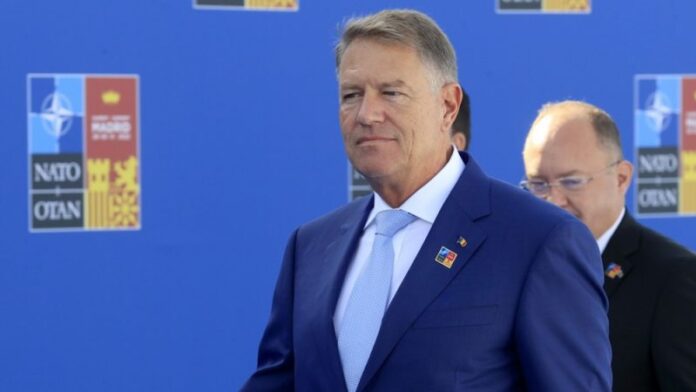Romanian President Klaus Iohannis said on Tuesday he has decided to run for NATO‘s leadership, a position for which many member states support outgoing Dutch Prime Minister Mark Rutte, according to Reuters.
In February, the United States, Britain, France and Germany backed Rutte to succeed Jens Stoltenberg as the head of NATO, putting him in a strong position to win the leadership of the transatlantic alliance.
Iohannis said he will compete for the post, arguing Eastern European states need better representation in Euro Atlantic leadership roles.
Romania must take on “an even greater responsibility within the Euro-Atlantic leadership structures,” President Iohannis told a press conference at Cotroceni Palace, the residence of the Romanian executive, underlining his aim to assume this role on behalf of Romania, Euractiv reports.
The Romanian President also underlined the valuable contribution of Eastern Europe to NATO’s discussions and decisions. With “balanced, robust, and influential representation from this region, the Alliance is better able to make decisions that take into account the needs and concerns of all member states,” he added.
“I have decided to enter the competition for the position of Secretary General of NATO,” stated Iohannis.
NATO leaders are appointed by consensus, meaning all members must consent to a final decision. The alliance has 32 members following Sweden’s recent accession.
The president’s announcement comes after the government brought forward Romania’s presidential elections from December to September this year.
Jens Stoltenberg, NATO’s current secretary general, will finish his term on 1 October.
Diplomats have said Rutte was the only official candidate for the post in the behind-the-scenes contest, although some said Iohannis’ name had also been floated in informal discussions.
European Union and NATO state Romania has raised defence spending to 2.5% of gross domestic product in response to Russia’s invasion of Ukraine.
The country, which shares a 650km border with Ukraine, is host to a U.S. ballistic missile defence system and a permanent NATO battle group.


